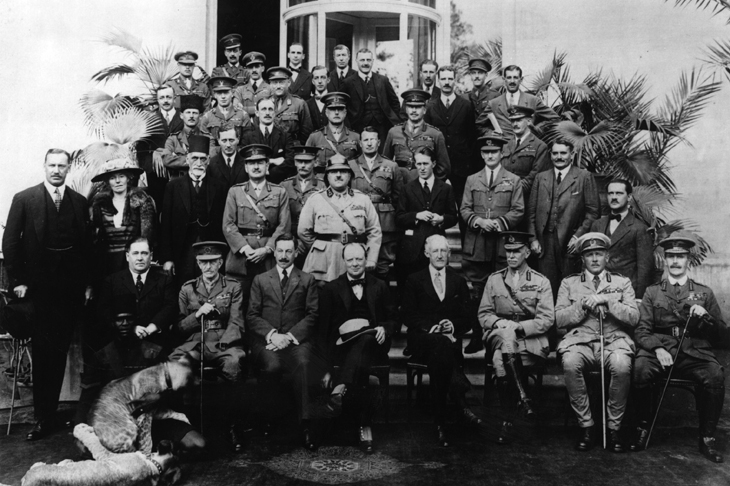They cut virgin paths through tropical forests, paddled dugout canoes over West African rapids, sailed along the Yangtze in a sampan, climbed the Rocky Mountains with a gun-toting guide, galloped across the Iraqi desert in search of sheikhs, slept under the stars and ate a lot of snake.
It’s easy to be seduced by the exploits of the Victorian women travellers. Broadcaster Mariella Frostrup pays homage to ‘their courage, curiosity and pioneering spirit’ in her new book, Wild Women and Their Amazing Adventures Over Land, Sea and Air, a collection of 50 pieces of travel writing by women. Caryl Churchill’s Top Girls, now revived by the National Theatre in London, features the 19th-century traveller Isabella Bird in the cast of celebrated proto-feminists.
The fabulous image of the black-clad, umbrella-shaking, girdle-wrapped, convention-breaking Victorian woman explorer still struts forcibly through the pages of books and across the stage. But these figures are anything but exemplary role models for our daughters. They were women-hating imperialists. They were just as tyrannical as their male counterparts.
It’s not difficult to understand why. While they were condemned to be invalids at home, they were Samsons abroad. Isabella Bird — who features in Wild Women as well as Top Girls — spent most of her life in Scotland crippled on a couch, suffering from a series of unidentifiable illnesses. Then, aged 40, an insightful doctor made an unusual prescription — travel — to cure her depression. The ailing spinster embarked on journeys through America, China, Japan, Korea, Persia, Kurdistan and Tibet, no longer a feeble dutiful daughter. Gertrude Bell, who in 1888 gained first-class results in modern history at Oxford but, as a female candidate, wasn’t awarded a degree, wrote from Syria, ‘In this country they all think I was a Person!’

Isabella Bishop (Photo: Getty)
Being a ‘Person’ meant they held sway over scores of semi-naked men who guided them through the bush, steered their canoes and carried their extensive luggage. Sometimes they abused this new-found power. May French Sheldon, trekking through East Africa in the 1890s with a 100-strong entourage, came across the body of a Maasai woman wearing beautiful anklets, which she coveted. The body was too bloated to remove them so she ordered her men to cut off the woman’s feet. When they refused, she took up a machete and did the job herself.
Sheldon could act in such a manner only because, in an era of colonial expansion, she was defined by her race, not her sex. Women travellers embraced this privilege, claiming the status of a ‘white man’. ‘I would open my tent-flap and say “Boy”,’ wrote Sheldon, ‘and back would come the answer “Sabe” [Sir]’.
The power and prestige these explorers grabbed wasn’t to be shared. They had no time for sisterly solidarity. When the wandering artist Marianne North, writer Constance Gordon Cumming (author of From the Hebrides to the Himalayas) and Bird discovered they’d all been invited to the same society gathering, they were appalled. North stumbled across Bird, ‘seated in the back drawing-room in a big armchair, with gold embroidered slippers and a footstool to show them on… and a ribbon and order across her shoulders, given to her by the King of the Sandwich Islands’. The hostess grabbed Miss North and Miss Gordon Cumming and, joining their hands with Miss Bird’s, exclaimed with glee, ‘Three globe trotteresses all at once!’ Miss North recoiled: ‘It was too much … we retired as fast as we could.’
Although these travellers are claimed as early advocates for women, they’d have vehemently denied it. In 1871, North recorded in her diary that she ‘would be terribly bored by the possession of a vote’. She went on: ‘And those sensible women would certainly not use it if they had one, and thus give a dangerous majority to the wild women in the world of petticoat government.’
Gertrude Bell, meanwhile, was a founding member of the Anti-Suffrage League and refused to walk along Piccadilly without a male chaperone. When Mary Kingsley was approached by petitioners for women’s rights, she protested: ‘I have no time for these androgines.’ Bird complained to the Times about a report that said she’d ‘donned masculine habiliments’ when riding over the Rocky Mountains. She insisted she was wearing ‘a thoroughly feminine costume’.
These women’s tales of derring-do are as racy as any pith-helmeted man’s. But are they our feminist forebears? As they themselves would say — most certainly not.
Got something to add? Join the discussion and comment below.
Get 10 issues for just $10
Subscribe to The Spectator Australia today for the next 10 magazine issues, plus full online access, for just $10.
You might disagree with half of it, but you’ll enjoy reading all of it. Try your first month for free, then just $2 a week for the remainder of your first year.














Comments
Don't miss out
Join the conversation with other Spectator Australia readers. Subscribe to leave a comment.
SUBSCRIBEAlready a subscriber? Log in